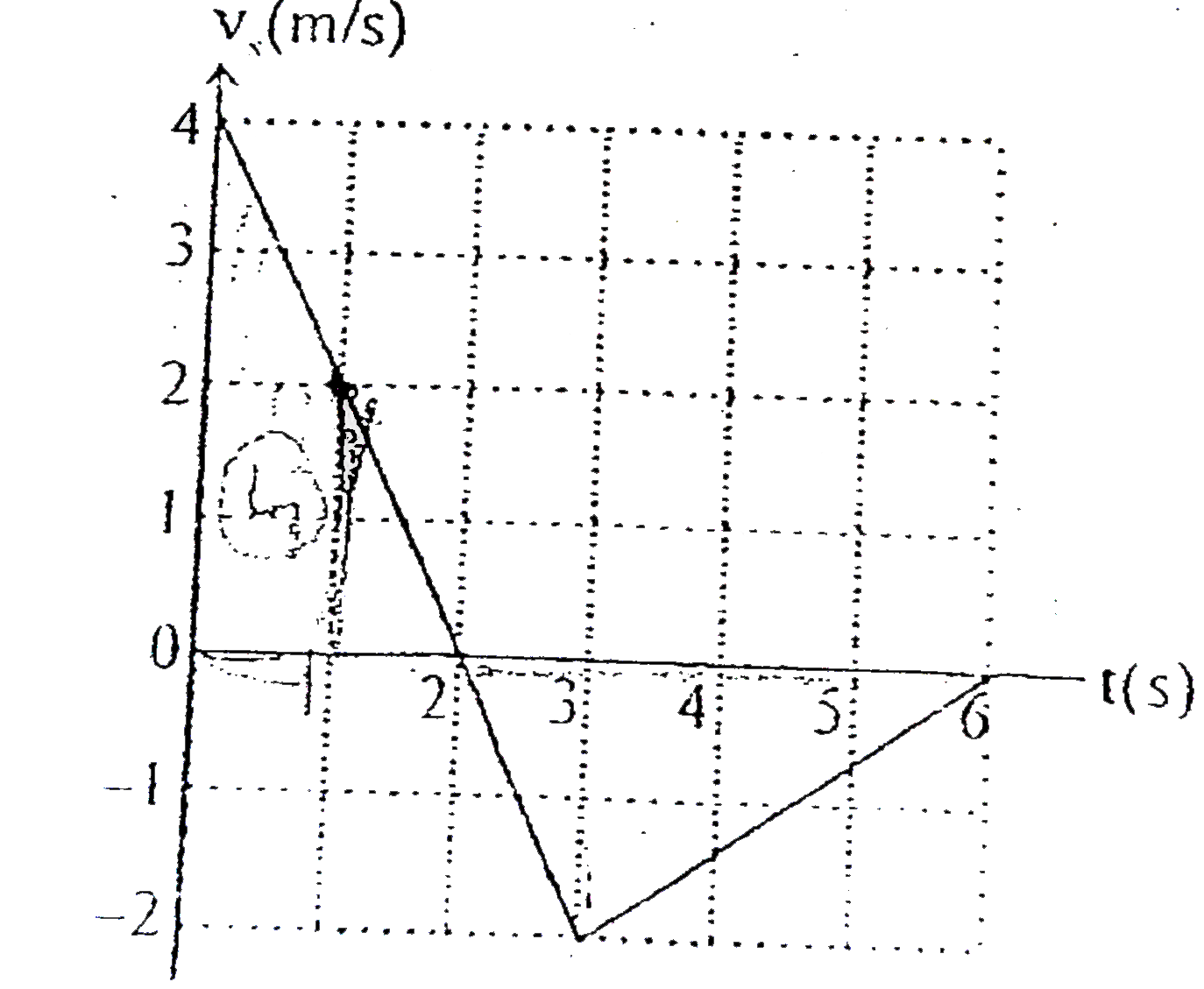The velocity of a particle is v=v0+>+ft2. If its position is x=0 at t=0, then its displacement after unit time (t=1) is
A
(v0+g/2+f)
B
(v0+g/2+3f)
C
(v0+g2+(f)/(3)
D
(v0+g+f)
Video Solution
Text Solution
The correct Answer is:C
We know that , v=dxdt⇒dx=vdt)
Integrating , ∫x0dx=∫t0vdt
orx=∫t0(v0+>+ft2)dt=[v0t(>22+(ft33]t0
or, x=v0t+>22+ft33
At t=1,x=0v0+g2+f3.
|
Topper's Solved these Questions
Similar Questions
Knowledge Check
The velocity of a particle is v=v0+gt+ft2. If its position is x=0 at t=0, then its displacement after unit time (t=1) is.
Av0+g/2+f/3Bv0+g+fCv0+g/2+fDv0+2g+3fIf velocity of a moving particle in is v=a+gt+ft2 (a,g,f are constants). At t=0 body is at origin. Find displacement after t=1s.
Aa+g+fBg+2fCa+(g2)+(f3)D(a2)+(g3)+(f4)The acceleration of a particle is given by a = 3t and at t = 0, v = 0, x = 0. The velocity and displacement at t = 2 sec will be-
A6 m/s, 4 mB4 m/s, 6 mC3 m/s, 2 mD2 m/s, 3 m
The velocity of a particle is v=v0+gt+Ft2. Its position is x=0 at t=0, then its displacement after time (t=1) is :
View SolutionThe velocity of a particle is given by v=u0+gt+12at2. If its position is x=0 at t=0, then what is its displacement after t=1s ?
View SolutionIf velocity of a particle is given by v=3t2−6t+4. Find its displacement from t=0 to 3secs.
View SolutionThe velocity of a particle is given by v=v0sinωt, where v0 is constant and ω=2π/T. Find the average velocity in time interval t=0to t=T/2.
View SolutionVx is the velocity of a particle of a particle moving along the x−axis as shown. If x=2.0m at t=1.0s, what is the position of the particle at t=6.0s?

View Solution
